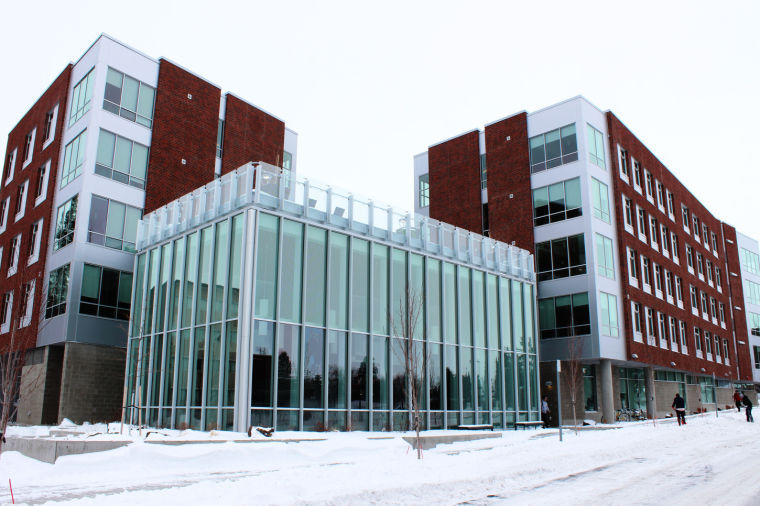“Best bang for our buck”: Residence Life aims to offer more for less
February 10, 2014
The cost of living in a WSU residence hall rises each year, but there are avenues in place to keep prices in check, Director of Residence Life Edwin Hamada said.
The Housing Advisory Board determines where the budget is used, Hamada said. The board justifies the budget requests for renovations or new buildings.
Costs for the residence halls go toward building new halls, mortgage on buildings, renovations to halls, staff salary, equipment, and maintenance, Hamada said.
“(There’s a) perception that we make a lot of money and are just wasting it…we have a lot of bills to account for,” he said.
In hopes of increasing the number of on-campus residents, sophomores who return to the residence halls are not required to have a Residence Dining Account (RDA).
Students preferred price-per-item rather than a set rate in the dining halls, said Robert Tattershall, the director of Housing and Conference Services. He said those who missed meals thought they were subsidizing those who regularly ate in the dining halls.
The dining base cost remedies this, Tattershall said. The $944 dining base fee covers utilities, staffing, and debt payments from the remodeling of all the dining centers during the past 10 years.
“Everyone who is a dining-center user is paying to keep the place open,” Tattershall said.
Sophomore anthropology major Allison Brown said she was unaware of the dining base fee when she was a freshman living in Rogers Hall. This year, Brown lives in Regents Hall and decided not to have RDA because of the dining base fee.
Other fees include a set semester fee for laundry rather than a coin operated system, Tattershall said. The fee is $40 per semester.
Residents are also charged hall and residence adviser fees, $25 and $12, respectively, Tattershall said.
Hall fees are used for events determined by the hall, such as ski trips, pizza parties, and games, Tattershall said.
Residence hall prices are also $300 cheaper in the spring than in the fall as an incentive to continue living on campus, Tattershall said.
Renovations to a dated hall can be as costly as building a new one, Hamada said. Hall prices differ depending on the newness of the building.
“The best bang for our buck is always our goal,” Hamada said.
Repair and maintenance in a residence hall are more reliable than through off campus housing, Hamada said.
Northside, Community-Duncan Dunn, and Olympia Avenue are the newest built or renovated halls, Hamada said.
Newly built halls aim to create a sense of community with the students, Hamada said. Floor plans include fewer students per floor.
Charles Carver, a junior material engineering major, said McEachern Hall did not have a sufficient kitchens-to-student ratio. He said the benefit of living on campus was the close walk to class and a consistently quiet place to study.
Newly designed halls will include more kitchens and a diversity of double and single rooms throughout the floor, Hamada said. Because a meal plan is not required for returning students, Hamada said he hopes more upper classmen will live among freshman and can offer advice.
Students can determine residence hall costs through the rate estimator on the WSU website, Hamada said.










